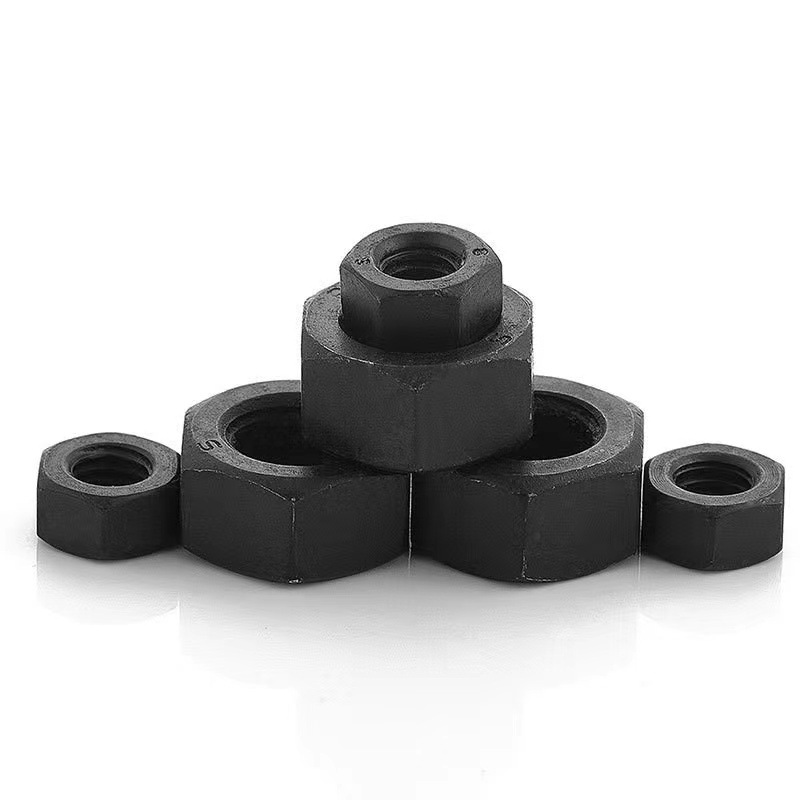

self tapping screws for grounding
دسمبر . 11, 2024 11:11 Back to list
self tapping screws for grounding
Self-Tapping Screws for Grounding An Essential Component in Electrical Systems
In the realm of electrical systems, grounding is a crucial aspect that ensures safety, equipment performance, and circuit reliability. One often overlooked yet indispensable component in grounding applications is self-tapping screws. These specialized fasteners are engineered to create their own thread as they are driven into materials, providing a secure, permanent connection. This article delves into the significance of self-tapping screws in grounding applications, exploring their functionalities, advantages, and best practices for use.
Understanding Grounding
Grounding is the process of transferring excess electrical energy to the earth. This is vital for preventing electrical shock, protecting equipment from surges, and enhancing the overall safety of electrical installations. Grounding systems typically involve connecting electrical equipment to a common ground point, often through a series of conductors and ground rods. Self-tapping screws play a pivotal role in these systems by establishing a reliable electrical bond between the grounding conductor and the grounding electrode system.
The Role of Self-Tapping Screws in Grounding
Self-tapping screws are particularly advantageous in grounding applications due to their ability to create a tight and secure connection without the need for pre-drilled holes. This feature is essential when working with various materials commonly found in grounding setups, such as metal, wood, and plastic. When these screws are driven into the material, their sharp, pointed tips cut into it, forming threads that hold the screws firmly in place. This capability is invaluable in situations where speed and efficiency are essential, particularly in residential or commercial electrical installations.
Advantages of Self-Tapping Screws
1. Ease of Use The self-drilling nature of these screws eliminates the need for pre-drilling, saving time and reducing the complexity of installation processes. This is especially beneficial for electricians and technicians who often work in tight or awkward spaces.
2. Cost-Effectiveness By reducing labor time and simplifying installation, self-tapping screws can be a more economical choice for grounding applications. Their ability to create secure connections without additional components means lower overall project costs.
3. Versatility Self-tapping screws come in various sizes, materials, and coatings, making them suitable for diverse grounding needs. Whether in a damp environment or exposed to harsh weather conditions, there is a self-tapping screw designed for the application.
self tapping screws for grounding

4. Strong Electrical Connection The design of self-tapping screws allows them to penetrate deeply into the grounding surface, ensuring a strong electrical connection. This reduces the risk of corrosion or loosening over time, promoting long-term reliability.
5. Corrosion Resistance Many self-tapping screws are coated with materials like zinc or stainless steel that enhance their resistance to rust and corrosion. This is crucial in grounding applications where exposure to moisture can compromise connection integrity.
Best Practices for Using Self-Tapping Screws in Grounding
To maximize the effectiveness of self-tapping screws in grounding applications, several best practices should be followed
1. Select the Right Size and Type Choose screws that are appropriate for the material and environment. The right length and diameter are critical for maintaining a strong connection.
2. Ensure Proper Torque Over-tightening self-tapping screws can cause damage to the material, while under-tightening can lead to loose connections. Use a torque screwdriver to apply the correct amount of pressure.
3. Maintain Clean Installation Ensure that the surface where the screw will be installed is clean and free from debris. This helps in achieving a secure electrical connection and prevents moisture buildup.
4. Regular Inspection Periodically check grounding connections and screws for wear, corrosion, and security. Address any issues promptly to maintain system integrity.
Conclusion
Self-tapping screws are an essential element in grounding applications, providing reliability, efficiency, and safety in electrical systems. Their unique design and ease of use make them a preferred choice for electricians and contractors alike. By understanding their role and adhering to best practices, professionals can ensure that their grounding systems are effective and long-lasting. With electrical safety being paramount, investing in quality self-tapping screws for grounding is a decision that pays off in both performance and peace of mind.
Latest news
-
Hot Dip Galvanized Bolts-About LongZe|High Strength, Corrosion Resistance
NewsJul.30,2025
-
High-Strength Hot Dip Galvanized Bolts - Hebei Longze | Corrosion Resistance, Customization
NewsJul.30,2025
-
Hot Dip Galvanized Bolts-Hebei Longze|Corrosion Resistance&High Strength
NewsJul.30,2025
-
High-Strength Hot-Dip Galvanized Bolts-Hebei Longze|Corrosion Resistance&High Strength
NewsJul.30,2025
-
Hot Dip Galvanized Bolts-Hebei Longze|Corrosion Resistance&High Strength
NewsJul.30,2025
-
Hot Dip Galvanized Bolts - Hebei Longze | Corrosion Resistance, High Strength
NewsJul.30,2025

